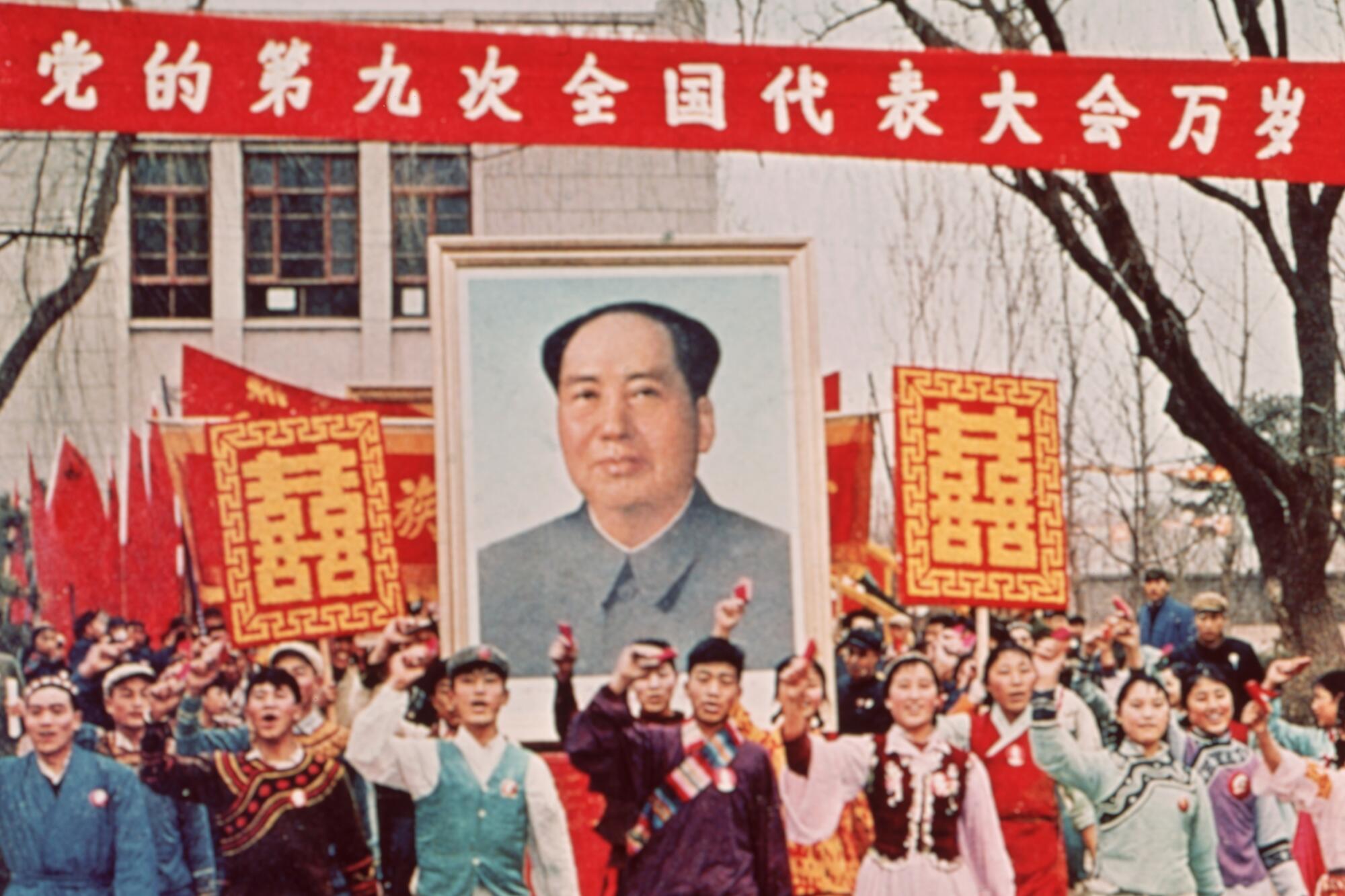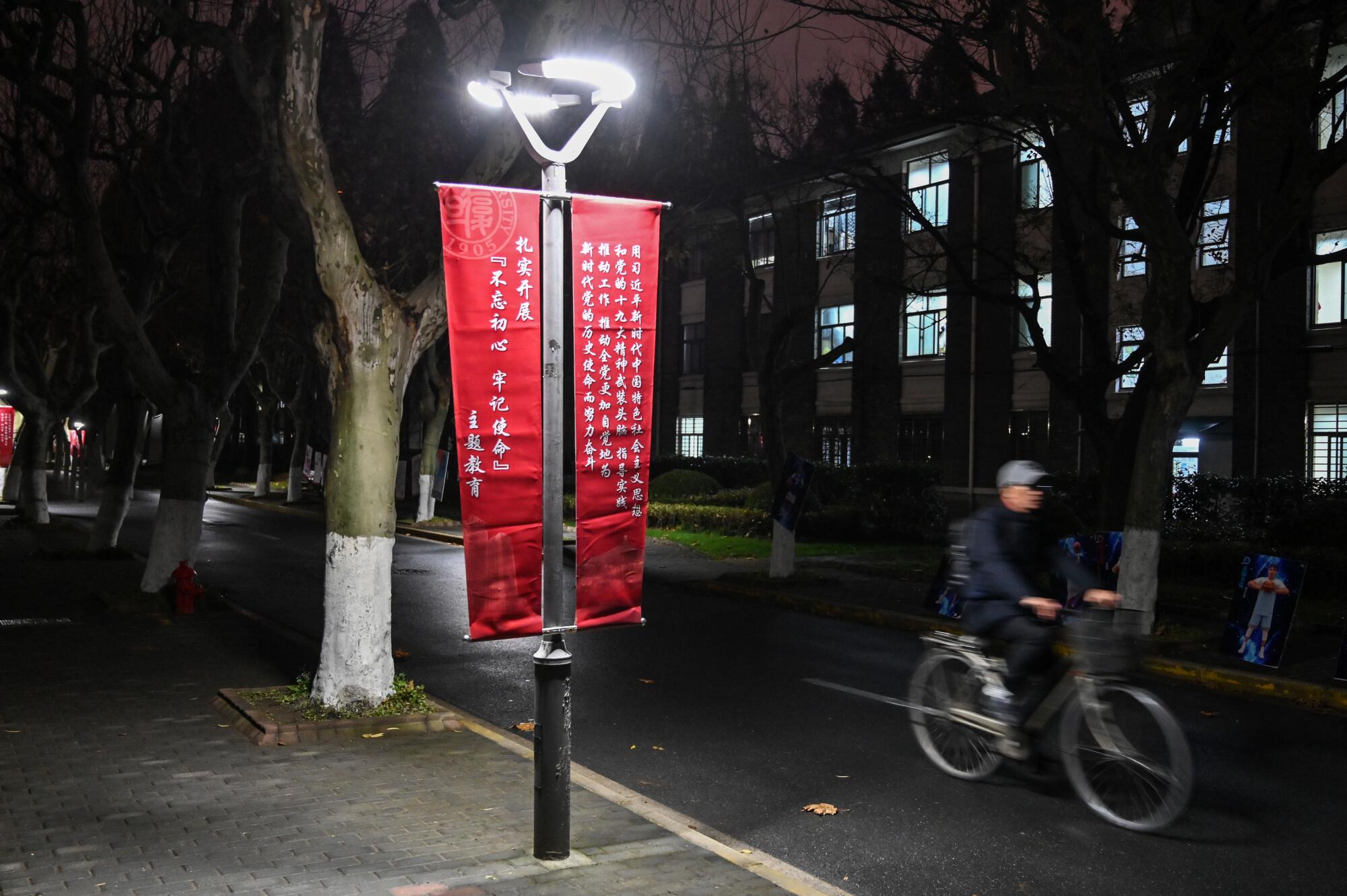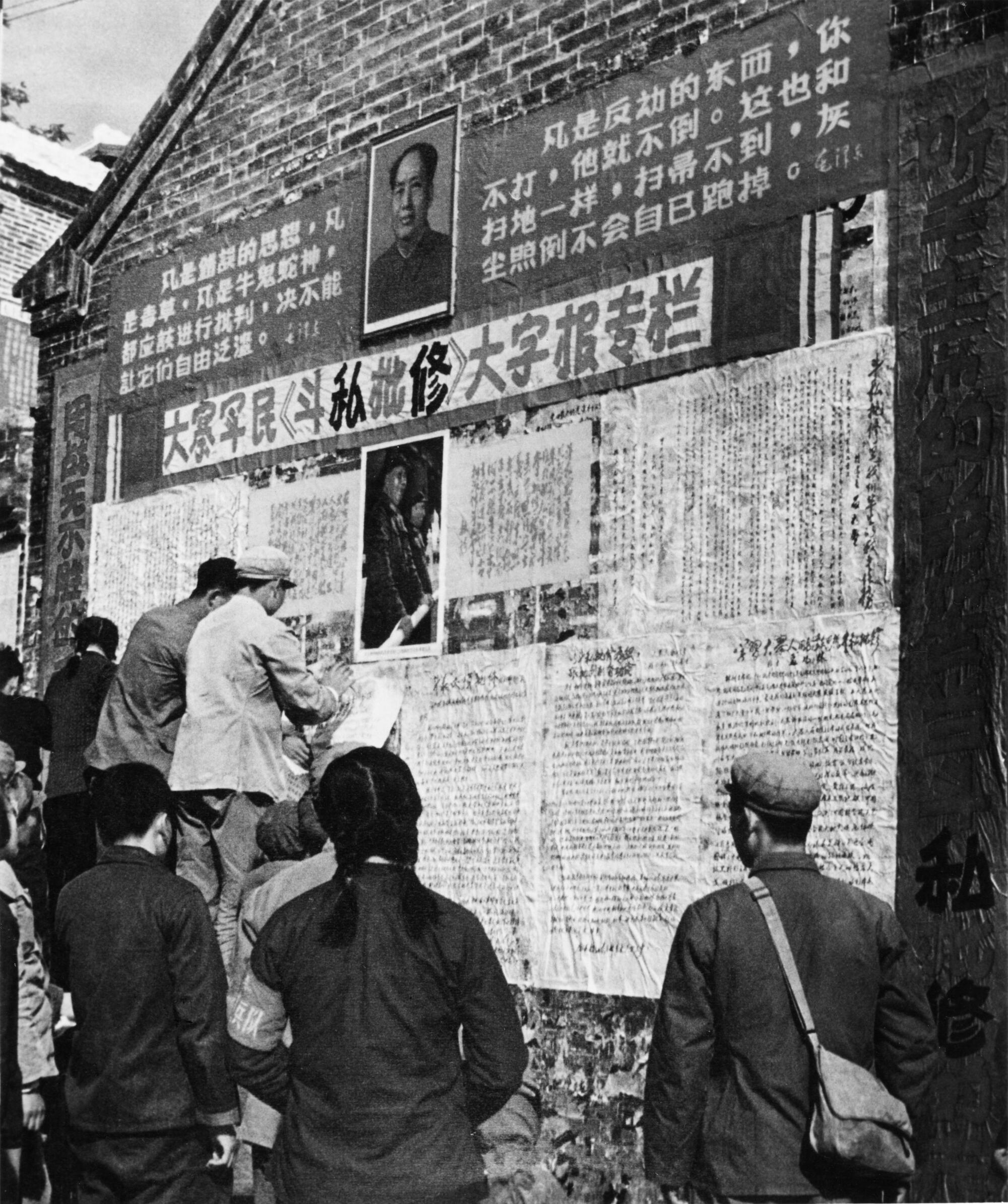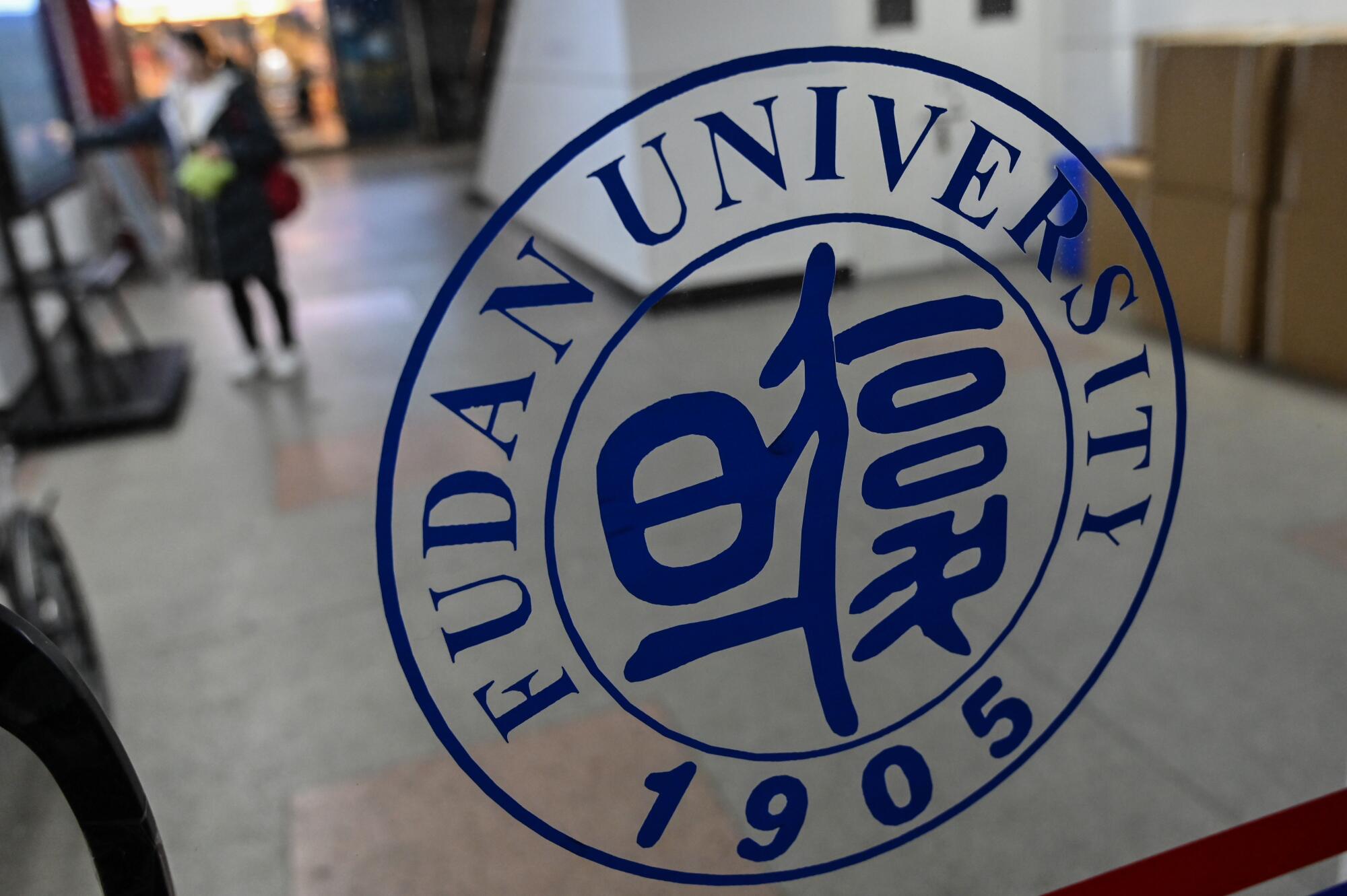
- Share via
BEIJING — The professor was under surveillance. Cameras taped her every lecture. She couldn’t publish or give talks outside the university. She knew she had to be careful when she taught on one of China’s most sensitive and dangerous topics: the Cultural Revolution.
To preempt accusations of straying beyond academia, all discussion was based on archives, books and articles. Classes were kept small; heavy reading lists filtered out potential student-informants. She made seating charts with photos, making sure no stranger could wander in unnoticed.
Despite such scrutiny, Sun Peidong felt lucky to be teaching in Shanghai’s prestigious Fudan University, the only school left in China offering truthful courses on the repressive Cultural Revolution of half a century ago. She loved watching her students question conventional narratives, find new ways of understanding their nation’s history and draw connections with their own families’ traumas.
Then the students turned her in.

Sun is among a growing number of university professors who have been targeted and punished for “improper speech” in recent years, part of a Chinese Communist Party drive to tighten ideological control.
Under Xi Jinping’s leadership, the party banned discussion in 2013 of “Western concepts” such as universal values, a free press, civil society and the party’s historical errors. In 2018, teachers from kindergarten through university were ordered to adhere to “Xi Jinping thought” and defend the party.
Those guidelines have hardened during a nationalist surge around the COVID-19 pandemic, leading to public shaming of intellectuals that remind many of the Mao Zedong era.
Professors have been betrayed by their own students or attacked online, then formally punished: In February, the Chinese Academy of Social Sciences fired Zhou Peiyi, a visiting lecturer from Hong Kong, after she criticized China’s coronavirus response on social media.
Last week, Hubei University fired literature professor Liang Yanping and revoked her party membership for publishing “incorrect speech” on social media related to Japan and Hong Kong. At least two other professors in Hainan and Harbin are under investigation for similar reasons.
Liang had been harangued online for supporting Wuhan novelist Fang Fang, whose coronavirus lockdown diary — at first embraced as an honest depiction of people’s suffering — became a target of nationalist anger once it was published in English.
Critics accuse Fang Fang of “handing a knife” to Western countries to smear China. They have sent her death threats and condemned her supporters, digging through their old social media posts to find anything that deviates from the party line.
For Fang Fang, 65, whose real name is Wang Fang, the crackdown is a continuation of the ideology that drove China’s Cultural Revolution — a period of radical violence under Mao‘s leadership, when youth militias roamed the nation denouncing and often killing intellectuals, authority figures and anyone labeled a “class enemy.” It is also, she noted, a failure to confront the damage that legacy did.
Chinese people have lived through generations of revolution, war, famine, massacre and other traumas since 1949. The coronavirus is the latest. Yet they have never been allowed to confront their own history or speak freely of it to their children.
The result is a society of impaired memory, Wang said in an email to The Times, one that repeats cycles of devastation and forgetting without addressing their deeper causes and consequences.
“People don’t know what forms the society they live in can take,” Wang said. “This hollowing and hiding of history affects countless people’s worldviews and most basic value judgments.”
Our education teaches many of us only to forget, even if our bodies are still wounded. They sing praises while covering their scars.
— Fang Fang
When authorities lied to residents about the scope of the coronavirus and locked down the city of Wuhan in January without sufficient medical care, thousands died during the outbreak. Such deception and abandonment, Wang thought, would spark a public cry for accountability.
“My judgment was wrong,” she said. “The epidemic has not ended, yet all I see everywhere is praise. Our education teaches many of us only to forget, even if our bodies are still wounded. They sing praises while covering their scars.”
It is these days, as it has been for decades, safest to be circumspect and cautious. To survive as a Chinese teacher or professor requires constant self-censorship and compromise, especially in the humanities, as university propaganda departments pressure instructors to promote party ideology.
Resistance comes at a cost, said Tsinghua University sociologist Guo Yuhua. In 2019, her colleague Xu Zhangrun, a law professor, was interrogated and suspended from teaching after publishing a series of essays critical of President Xi, regarded by many intellectuals as a tyrannical autocrat who is steering China backward.
After writing another critique of Xi’s handling of the coronavirus this year, Xu was placed under house arrest and cut off from the internet, though Guo said he has now been released.
Guo, 64, was one of the only Tsinghua scholars who spoke in Xu’s defense. She has also been reprimanded by the university’s party officials and blocked from social media. She struggles to get copies of her own books, only published in Hong Kong and repeatedly confiscated at customs. Before meeting a Times reporter for an interview, she was called and warned not to speak with foreign media.
“I am afraid,” she said. Colleagues and friends had told her to stop speaking. You’ll only hurt yourself, they said. But she didn’t want to give in.
“All people face risk,” Guo said. “If we think, ‘I’ll just give up one step,’ then everyone gives up a step, then another — and in the end we have no space at all. The ceiling presses straight to the floor.”
Deep-rooted pragmatism runs through Chinese society, Guo said, the product of enduring thousands of years of authoritarianism. She saw it in her fieldwork, collecting oral histories from Chinese farmers who had been forbidden to flee their villages amid the Great Leap Forward, one of the worst man-made famines in history.
Those who survived starvation were thrown into the purges and upheaval of the Cultural Revolution. When China finally began to open, allowing people like Guo to attend university, hundreds of millions of rural people remained locked in inferior status because of their birthplace.
Even now, 40 years since reform began, China’s social structure does not recognize people as equal citizens. It also places no bounds on the Communist Party’s power. Those dynamics create China’s cycle of crises, Guo said. But with no dissent tolerated and little space for historical reflection, few would even think of demanding change.
“Chinese commoners are truly the best commoners in the world. They suffer, they bear with it, they endure,” Guo said. “They put life above dignity. They say, ‘As long as I’m alive, it’s fine.’”
As a sociologist, Guo said, her job was to tell the truth — not to project “positive energy,” as the propaganda department expected, but to be like a doctor, finding the symptoms of a society’s illness and diagnosing its cause.
“If you won’t even let us tell the truth and we just follow you, singing songs and speaking lies, then we are not scholars, we are not academics, this is not sociology,” she said. “What’s the point?”
“All people face risk. If we think, I’ll just give up one step, then everyone gives up a step, then another — and in the end we have no space at all. The ceiling presses straight to the floor.”
— Guo Yuhua
Sun, the Fudan historian, entered academia at a more open time. She was invited to join Fudan’s history department in 2013 by its party secretary, himself a scholar of the Cultural Revolution. There were a few “golden years,” she said, when she freely held workshops, conferences and discussions with Western scholars, and guided her students, among the smartest youths in China.
Things began to change in 2015. Several of her articles about the Cultural Revolution were rejected by academic journals. Secret police questioned her about her research and Western connections. She left the country for two years, completing fellowships at Harvard and Stanford.
When she returned in September 2018, a new party secretary was in charge. Sun was blocked from giving public lectures and was asked to change the name and content of her course. She refused.
Then, in April 2019, students posted sheets of paper on her office door — printouts of her social media posts and accusations that she was supporting a female student to subvert state power.
They were reminiscent of “big character posters,” handwritten political denunciations that Mao had encouraged students to use as a “weapon” during the Cultural Revolution. Students plastered campuses with vitriolic diatribes against their teachers, often a prelude to insulting them on public stages, then beating them to death. Sun was saddened to be a target of similar tactics.
“That was very hurtful,” Sun said. “Because I really love teaching. I really care for my students.”

The students also reported her to her department, the university president and university-level party secretary. They attacked her personally online. Anonymous users joined in, cursing her as a traitor and threatening her family in private messages. The department’s party secretary told Sun she had brought it on herself.
Before traveling to Hong Kong for an academic conference in July 2019, Sun was forced to sign an agreement vowing not to take photos, talk to locals about the ongoing protests or post anything about them online.
Then in December, a rare protest flared at Fudan: The university had changed the school charter, removing “freedom of thought” and inserting paragraphs about loyalty to the Communist Party. A student flash mob gathered in the cafeteria and sang Fudan’s school song, which praises those terms that were removed.

Sun was not involved in the protest, but she discussed it with several Western newspapers. The students protesting in the cafeteria, she said, reflected three types of people in Chinese society: those who resisted by singing out loud, those who watched and filmed them but said nothing, and those who lowered their heads and ate, as if oblivious to what was going on.
“If people want to come to consciousness, to wake up and be alive, to know what kind of society they live in or want for their kids, they know what to do. If not, they just keep quiet,” she told The Times. “You cannot wake a people who are pretending to be sleeping.”
The department party secretary ordered Sun to write a personal statement pledging that she’d stop speaking to foreign media. It threatened to block her from traveling abroad if she didn’t comply.
Neither Fudan University, Tsinghua University nor the Ministry of Education responded to requests for comment.
This year, Sun quit her job and left China. There is no free space left, she said.
Only two other history professors were teaching the Cultural Revolution at Fudan. One is retiring this year, and the other has been pressured into changing what he teaches.
“That’s what the party wants,” Sun said: either praise or silence.
More to Read
Sign up for Essential California
The most important California stories and recommendations in your inbox every morning.
You may occasionally receive promotional content from the Los Angeles Times.











